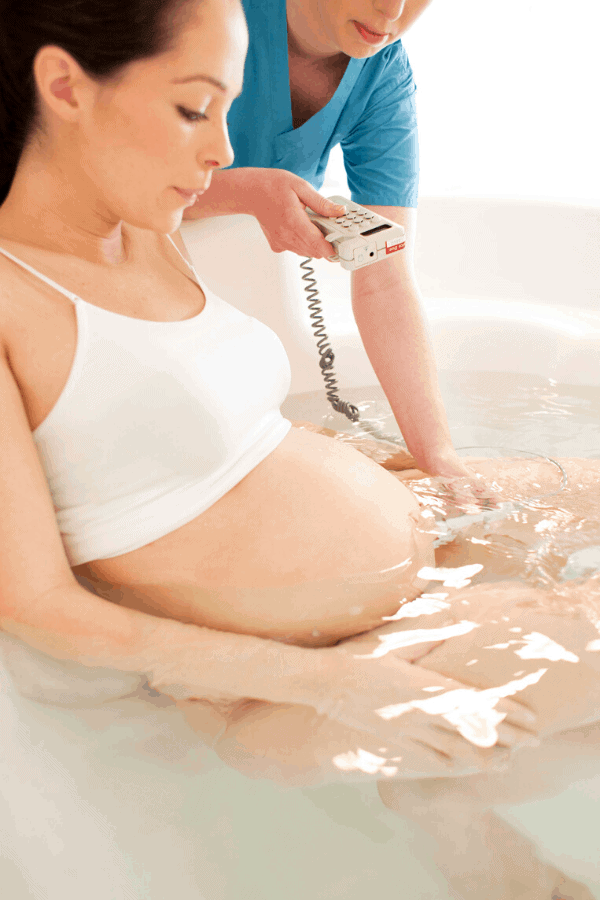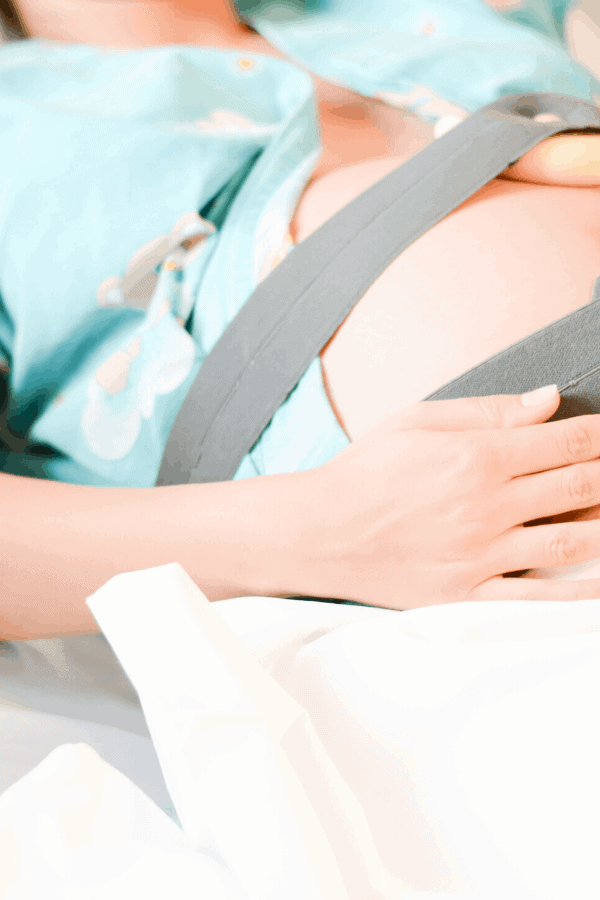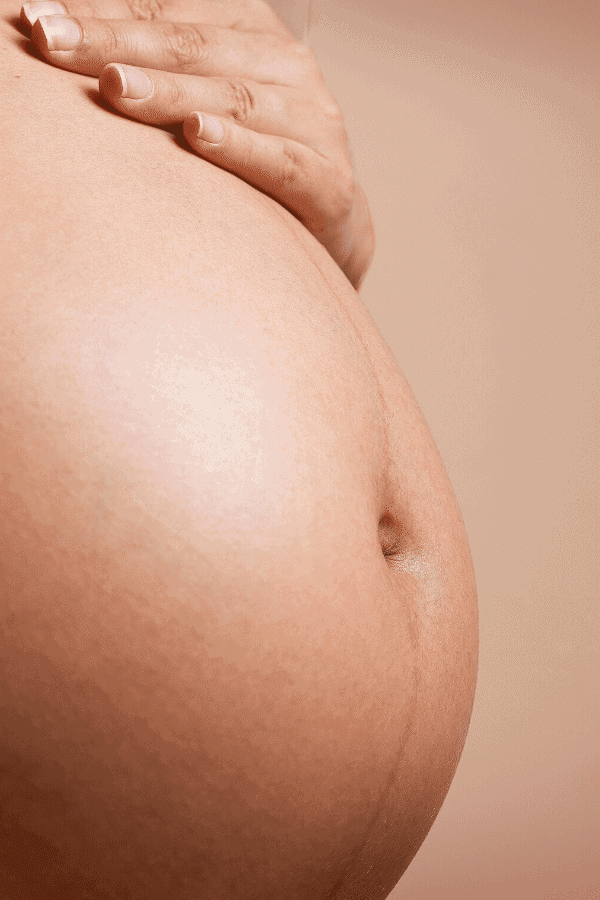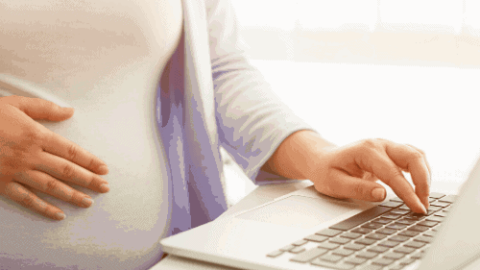At some point during pregnancy, you will begin to wonder what contractions actually feel like.
Whether out of anticipation of what’s to come or maybe you may be experiencing what you think are contractions already and just want to make sure that they aren’t premature contractions and in fact the real deal.
I actually Googled the exact question when I was pregnant with my daughter because I had a low lying placenta. I was told I would not be allowed to into labor for safety reasons.
Luckily for me the Placenta did move in time for the birth and I was fortunate to be able to give birth naturally
But every time I felt a weird sensation in my belly, I would frantically look up the symptoms just to make sure I wasn’t going into labor!
So, I guess wanting to know what labor feels like, especially for first-time moms, is pretty normal. We want to prepare ourselves as much as possible for what is to come.
Whether you are researching just so you know what to expect or if you are already experiencing what you think are contractions and want to make sure, make sure to read this post as we discuss the different types of contractions during the different stages of pregnancy.
Please note that this article should not be used for medical diagnosis, always check with your medical Doctor for proper advice.
Related: 15 of The Best Birth Affirmations to get you through Birth.
Before we dive deep into everything there is to know about contractions, let’s talk about Braxton-Hicks or false labor.
Braxton-Hicks are sensations in the abdomen that feels like labor, and they can come around the second or third trimester in pregnancy. This is when you feel your abdomen tightens a bit.
Braxton Hicks is not something you should be worried about, nor is it painful.
They also come and go and do not escalate. Unlike during real labor, the frequency and intensity of Braxton Hicks do not increase.
Also, Braxton- Hicks may go away on its own with a change of position, drink water, or if you pee.
Braxton-Hicks should not be painful, so if you are experiencing pain and a lot of discomfort, call your Doctor.

As an Amazon Associate I earn from qualifying purchases. The links below may be affiliate links. Please read my disclosure policy for more information.
Related: Losing your mucus plug? Is Labor Imminent?
What is Braxton Hicks?
Braxton Hicks is when your uterus tightens or contracts and then relaxes, think of it as your body trying to practice for the actual labor.
There are certain activities though that seem to trigger them, like walking fast, getting too excited, holding a pee, and sometimes when the pregnant woman gets dehydrated.
These ‘false labor contractions,’ as some call it, can happen at any time of the day, but you shouldn’t feel any pain.
Towards the end of your pregnancy, these contractions may occur regularly, almost like in a pattern, which is why some women mistake them for the real thing.
Unlike real labor, Braxton Hicks does not cause dilation in the cervix.
Related: Induce labor Naturally with Midwives Brew
How to Treat Braxton Hick?
Although you can’t stop them from occurring, here are some of the things you can do to ease the discomfort:
• If you’ve been quite active that day, take some time to relax and put your feet up
• If you’ve been sedentary, go out for a quick walk
• Drink lots of water to re-hydrate your body
• Change your position in bed or chair

What Does a Contraction Feel Like at 30 Weeks?
If you hardly felt the Braxton Hicks prior to 30 weeks, you will definitely start feeling them as they become stronger around this time.
And unless you have other medical complications, the contractions you feel at 30 weeks is probably just that. You will start noticing them more and more as your pregnancy progresses.
You will feel a painless tightening in your belly, and you’ll notice your belly becoming very hard. It might even look weird and contorted at times!
Don’t worry; this is a normal occurrence among pregnant women at 30 weeks and up.
Related: THE BEST ONLINE BIRTHING CLASSES COMPARED
What Does a Contraction Feel Like at 33 Weeks?
At 32-33 weeks, you will definitely feel the Braxton Hicks each time it kicks in. At some point around 32-33 weeks, they become more regular in the occurrence that a lot of women mistake them as premature labor.
Always remember that Braxton Hicks can happen at regular intervals, especially towards the third trimester, but it does not increase in intensity and should not feel painful.
Again, with Braxton Hicks, it’s more of a discomfort or a weird feeling in your abdomen. Personally, it felt like my tummy was getting squished by force from the inside.
Weird, I know! This now-regular occurrence is perfectly normal as your body prepares for the upcoming birth.

Related: Contractions Vs Braxton Hicks. How to tell the difference.
What does a Contraction Feel Like before 37 Weeks? – Premature Labor
It is important for a pregnant woman to know the differences between Braxton Hicks and Premature Labor to avoid unnecessary worries and trips to the Doctor.
More importantly, it is important for a woman who is between week 20 and week 37 of pregnancy to know the signs of preterm labor, so she knows when to call the Doctor or go to the hospital.
Let’s talk about premature in detail.
What is Premature Labor?
Premature labor is when our body starts gearing up for birth three weeks (or more) than your expected or due date; it could be anywhere between week 20 and week 37 of pregnancy.
The good news is, with medical technology these days, doctors are able to do more to help delay the delivery and avoid premature birth complications.

Related: The Easiest Way to Induce Lactation
What Causes Premature Labor?
There are many factors that increase your risk of premature labor. Below is a list of the most common reasons:
• Medical issues like pre-eclampsia, infections, and high blood pressure, among others
• Alcohol and drug use
• Weight issues (underweight or overweight) prior to pregnancy
• Pregnancy via in vitro fertilization
• Having twins or multiples
• No proper prenatal care
All these, among others, can increase one’s risk of premature labor and should be discussed with your Doctor.
You May Also Like:
What are the Symptoms of Premature Labor?
Premature labor differs from Braxton Hicks in many ways, below are some of the signs that you may be going through preterm labor:
• Abdominal Cramping
• Contractions with at least 10-minute intervals and the pain intensifies each time
• Feels like you are coming down with the flu accompanied by other symptoms such as diarrhea, vomiting, and general nausea

Related: Epidurals in Labor. All Your Questions Answered.:
When to go to the Doctor?
If you are experiencing one or more of these prior to you 37 weeks of pregnancy, it is important that you contact your medical practitioner immediately for proper medical assistance.
What Does a Contraction Feel Like at the Beginning of Labor?
Hopefully, everything goes well, and you reach full term, your body then starts preparing for the most awaited part, which is your baby’s birth. So, how do you know that the birthing process has started?
There are many signs of cervical effacement; let’s talk about them in stages.
Lightening – A lot of women describe how contractions feel when they first start as having frequent urge to pee all the time. It starts when the baby lowers to your pelvis, making the uterus rest or apply pressure on your bladder.
This then triggers the sensation of needing to pee all the time. This stage is called lightening, which can start a few hours, days, or even weeks before labor.
Passing of the Mucus Plug– During pregnancy, a mucus plug forms at the cervix to help protect the uterus and the baby by blocking the bacteria from entering. As your cervix dilates, the mucus plug is discharged through the vagina.
It may look slightly bloody, clear, or pinkish when it passes. The release of the mucus plug is your sign that labor may commence within two weeks after the passing.
Labor Contractions – signs of true labor contractions include:
• Belly and back pain
• Regular contractions and unlike Braxton Hicks, these contractions are strong and get more painful/intense over time.
• Belly tightens and turns really hard
• Pressure in the pelvis
• Contractions that feels like a wave that starts from the top of your uterus
• No relief from pain even if you change your position
Related: 21 Things I wish I’d known about Birth.

The list is long and may seem scary, but you just have to trust your body. Also, during labor, you will be able to rest and have relief from the pain in between the contractions.
Please note that the labor experience can vary from one woman to another, and there is no universal description of what labor feels like.
A Common Description of What does a Contraction Feel Like? – Gas Pain
A lot of women who have gone through labor agree on one thing. Contractions can feel like an intense gas pain in the tummy. One that does not go away even after going to the toilet.
One important thing that you need to remember all throughout your pregnancy is to have direct and regular contact with your midwife or medical expert.
Update them with your progress and report anything which you think is unusual. It is important that you get proper expert advice when it comes to your pregnancy, whether it’s contractions or something else, so you will be given guidance, suggestions, and more importantly, immediate care if necessary.
Worried about birth? Get Prepared
If you are worried about birth and are feeling a little lost with all the pain relief options I would seriously recommend you take an online birthing class.
Taken from the comfort of your own home you are able to choose when you take the class, show it to your birthing partner and have no need to travel to a birthing center.
The course is designed to empower you to have the birth that you want!
You can read my honest review here
Don’t worry, you got this, momma!




